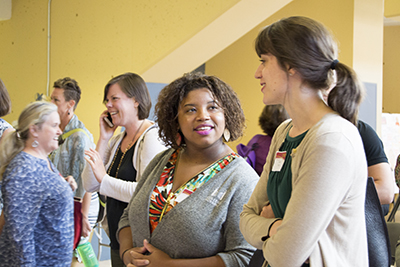
On June 20 and 21, roughly 500 of Minnesota’s education leaders, researchers, policy makers, and nonprofit organizations gathered at Educational Equity in Action II. This was the second convening hosted by the University of Minnesota. Its focus: improving educational equity by “Working across schools and communities to enhance social emotional learning.”
Opening keynote
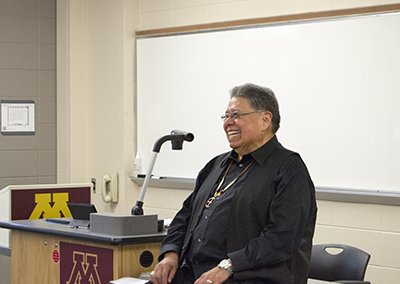
Dr. Martin Brokenleg, Co-author of the book Reclaiming Youth at Risk: Our Hope for the Future and co-developer of the Circle of Courage model, explained that trauma from oppression, like that experienced by the American Indian community, can span generations.
“Our culture is plagued by intergenerational trauma,” said Brokenleg, whose mother’s family was among those imprisoned at Fort Snelling. He cited the incredibly high suicide rate among Native people, especially in the 18-30 age group, and among people in Ireland and Scotland after generations of oppression by the British, whose methods not coincidentally were adopted by the U.S. Bureau of Indian Affairs. “We’ve had a normal human reaction to an abnormal history.”
Brokenleg described his Circle of Courage model which supports character building or “teaching the heart” through generosity, belonging, independence, and mastery. Brokenleg finished his talk with practical strategies from Circle of Courage attendees could take back to their schools and communities to help young people—especially those suffering from intergenerational trauma—learn and grow.
- Visit Brokenleg’s website for resources on intergenerational trauma and the Circle of Courage.
- View an artist’s interpretation of Brokenleg’s keynote by Jen Mein.
Plenary
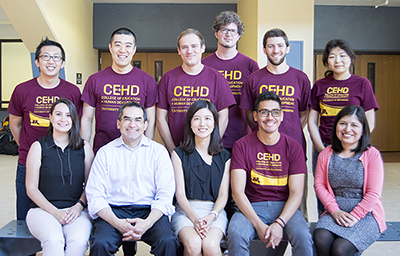
Dr. Michael Rodriguez, professor of educational psychology at the University of Minnesota, Jim and Carmen Campbell Leadership Chair in Education and Human Development, and co-director of the Educational Equity Resource Center and the covening, led a plenary discussion on the results of the Minnesota Student Survey (MSS).
Rodriguez explained, although at a high-level the MSS tells a positive story about the developmental skills and supports of Minnesota youth, a closer look at the data demonstrates the reality of the inequities some students experience in Minnesota’s education system. This is particularly apparent for students identifying as lesbian, gay, or bisexual (LGB); students who skip school; students who receive disciplinary action in school; and students who have experienced trauma.
“Ninety-nine percent of our youth say their goal is to graduate from high school—and 65 to 85 percent across demographic groups also want to go to college,” said Rodriguez. “That’s a lot higher than our state’s high school graduation goal for them, which is now about 90 percent by 2020!”
He emphasized that students’ own goals are higher than those we’ve set as a state.
Following the plenary, students in Rodriguez’s Minnesota Youth Development Research Group (MYDRG) led detailed discussions on the MSS results for some of these groups, including: American Indian students, Hmong students, students in special education, LGB students, and students experiencing trauma.
Download presentations from the convening on the MYDRG website.
Breakout sessions
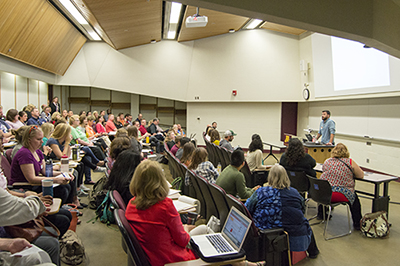
Throughout the convening, participants selected from 28 smaller group breakout sessions on social-emotional learning led by University of Minnesota researchers, youth engagement groups, school districts, the Minneapolis Department of Education, and more. Several sessions included youth as presenters and/or focused on youth participatory action research projects.
Small group discussions
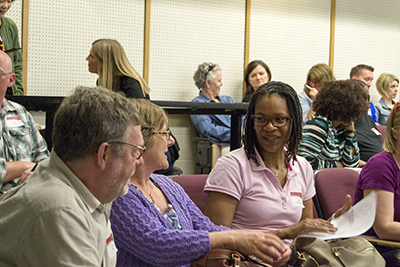
Before the final keynote, attendees participated in a process called TRIZ. They met in small groups—dividing themselves up based on the different developmental skills and supports students need to be successful (identified in Rodriguez’s work). Participants started with the unusual task of listing actions communities might take to destroy the skill being discussed in youth. Then, they shared opportunities they had to remove some of these destructive activities and developed action plans for their schools, communities, and organizations.
View TRIZ sampling responses for destructive actions and action steps.
Action commitments
At the final session participants responded to the statement “I am committed to” with their commitments to take action on educational equity.
Closing keynote
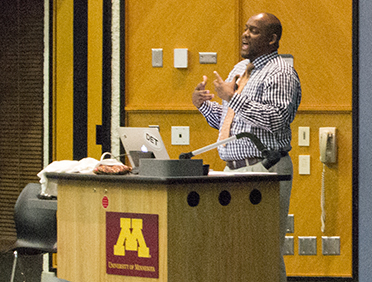
Dr. Muhammad Khalifa, associate professor in Organizational Leadership, Policy, and Development, closed out the convening by challenging the group to practice culturally responsive school leadership (CRSL). He asked that school leaders promote schooling that addresses the specific cultural and learning needs of students by focusing on the perspectives of parents, students, and community members.
“Change in schools can be promoted and fostered by ‘leaders,’ but culturally responsive school leadership is practiced by all stakeholders,” said Khalifa. “Community-based based knowledge informs good leadership practice.”
In this statement, Khalifa connected his keynote to Rodriguez’ and Brokenleg’s work. Each of the speakers stressed the importance of listening to all members of our community to improve educational equity.
Khalifa ended his talk by sharing strategies to help attendees to achieve CRSL in their own schools, organizations, and communities.
View an artist’s interpretation of Khalifa’s keynote by Jen Mein.
Thank you to our sponsors
The Educational Equity in Action convening was created by the University of Minnesota’s Educational Equity Resource Center. This year’s event was organized in partnership with the University’s Office for Equity and Diversity and made possible by the Minneapolis Foundation, Youthprise, Jim and Carmen Campbell Leadership Chair in Education & Human Development, College of Education and Human Development, Department of Educational Psychology, and the College Readiness Consortium.



